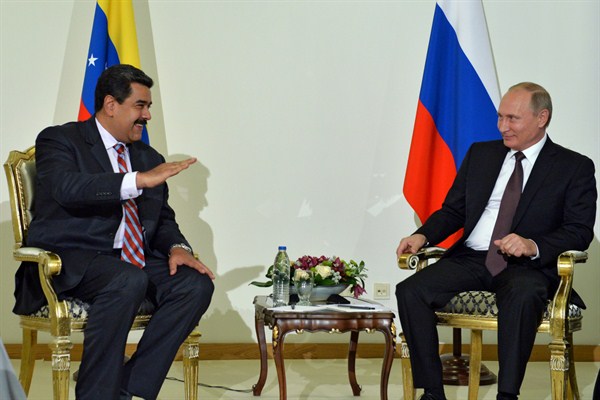Venezuelans endured a particularly difficult year in 2016. Inflation skyrocketed; scarcities lingered; crime continued to soar; and the Venezuelan currency plummeted, albeit with a bit of a December rebound as OPEC cut oil production levels and the government eliminated its 100-bolivar note, its largest and most-used bill. The year offered little respite for Venezuelan President Nicolas Maduro, too. The opposition, which has controlled the National Assembly for the past year, continued to press for a recall referendum, while many political actors abandoned the dialogue mediated by the Vatican. Beyond the country’s borders, conservative governments replaced leftist ones in Argentina and Brazil, and the Common Market of the South, or Mercosur, suspended Venezuela after months of infighting within the bloc.
These difficulties will surely persist in 2017, raising the stakes for Maduro. But the Venezuelan government is far from isolated, and the embattled president can still count on support from abroad. He maintains key relationships within and beyond Latin America, from Bolivia and Cuba to China and Russia.
The main narrative in Latin American politics throughout 2016 was the return of the right. In Argentina, more than a decade of leftist governments under the Kirchners—the late President Nestor Kirchner and his wife, former President Cristina Fernandez de Kirchner—ended in late 2015 with the election of conservative President Mauricio Macri. Upon his victory, Macri instituted several free market-oriented policies, including the elimination of export taxes on several products, a reduction of tariffs on soy, and income tax reductions. Next door in Brazil, the right-wing opposition removed beleaguered President Dilma Rousseff from office in what many observers considered an undemocratic maneuver. That ushered Michel Temer into power, who has cut public spending and ushered in a period of harsh austerity.

